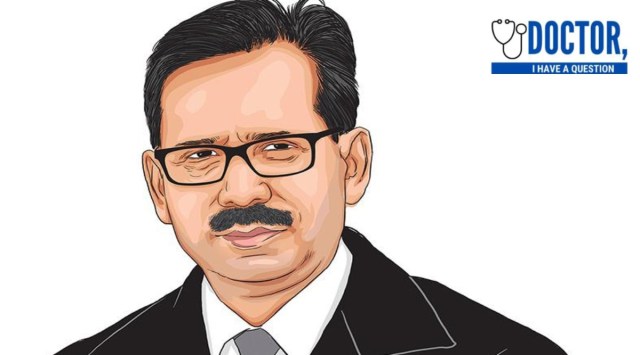If a recent study in the US is to be believed, then older people should be taking multivitamins daily as they have been found to improve their memory, cognitive abilities and body functioning. The study also looked at the impact of cocoa extract but did not find any benefits. Interpreting these new findings, Professor Pravat Mandal, former director-in-charge of the National Brain Research Centre, says that vitamins do have an impact on cognition though not as profound. Other factors like sleep and exposure to pollution might have a larger role to play.

The multivitamins that have been used in the study also contain several important minerals, including silver. And these together might have some impact on cognition, as has been shown in the study too.
In fact, we already know that Vitamin C and E, when taken daily, do have some impact on cognitive functions. Metals such as iron, when absorbed by the brain, generate free radicals. The brain has a mechanism to control this using an antioxidant called glutathione. Cognitive impairment happens when this mechanism is thrown off balance. Now, Vitamin C and E are also scavengers of these radicals and can help in the process but this efficiency of scavenging is not profound.
What this essentially means is that while daily intake of vitamins might have a protective impact, they alone cannot prevent cognitive impairment or diseases such as Alzheimer’s and other dementia.
Your study looks at this antioxidant glutathione. How does that help?
We have demonstrated in over 200 Alzheimer’s patients that there is a decline in their glutathione levels and an iron build-up. Our hypothesis is that supplementing the glutathione through a 500 mg dose daily for six months in patients with mild cognitive impairment then can prevent progression to Alzheimer’s. Once a person has Alzheimer’s it cannot be reversed.
However, this is just a hypothesis based on our study of patients with Alzheimer’s and we need to prove it. We have received a nod from the drug controller to conduct a clinical trial for which patients will be recruited from the neurology department at the All India Institute of Medical Sciences.
Story continues below this ad
So, what can help in preventing cognitive decline in the elderly?
The most important factor when it comes to cognitive abilities is, in fact, sleep. And, the paradox is that even though those over the age of 50 years need proper sleep to prevent cognitive decline, they are the ones sleeping less because of anxiety, aches and pains, or nowadays spending too much time on the internet.
It is important that people start practising good sleep habits as soon as they cross the age of 50 years. Improper sleep can also have an impact on younger people, but they are likely to develop psychiatric disorders instead of cognitive impairment.
Apart from sleep, people also have to see what they are spending their time on the internet doing. I do not say social media is bad – no, it can help in forming connections and engaging with people – but watching or reading thousands of stories passively doesn’t help. There is a need to question and challenge the brain. Solving puzzles, learning new things have a positive impact on cognition.
Story continues below this ad
There is also a need for people to have a soulmate, and by that I do not mean a wife or a partner. It can be a friend, a parent, a sibling, anyone – anyone that the person is comfortable in sharing their anguish with. There is a loss of connections among people that we are seeing today and that is an important factor too.
And, most importantly, people should go to a doctor as soon as they start noticing a decline in their cognitive functions or memory instead of trying to hide the symptoms. Early treatment is the best.
Also – and I know that it is not possible – but staying away from pollution as much as possible will also protect against these diseases.
What is the role of pollution in cognitive function? And, how can we protect against it?
Story continues below this ad
If you see, the brain is very protective of itself. So, when we consume contaminants through foods, it goes to the various systems in the body but it does not pass the blood brain barrier to go into the brain. But when we inhale the same pollutants, they actually do make it across and freely interact with various proteins in the brain. Metals such as zinc, cadmium, copper can be absorbed quicker into the brain.
Other than the interaction with the proteins, deposition of these metals in the brain is a problem. Like I said earlier, they generate free radicals. Iron deposition in the substantia nigra of the brain is connected to Parkinson’s, in the dorsolateral prefrontal cortex is related to psychiatric disorders like bipolar disease, schizophrenia and major depressive disorders. In the hippocampus, iron is related to cognitive abilities.
When we are exposed to a toxic environment, we are inviting these problems. Now, masking up might help but it is not always possible; we need to do away with pollution somehow.
Why Professor Mandal?
He is a senior scientist and former director-in-charge of the National Brain Research Centre. His work focusses on early diagnostic markers of Alzheimer’s, neuroimaging techniques and brain chemistry in people with neurological and psychiatric disorders. An alumnus of IIT Madras, he has worked with the department of radiology at Johns Hopkins and Department of Psychiatry and Anaesthesia at the University of Pittsburgh. He has published at least 65 papers in high impact international journals.





























